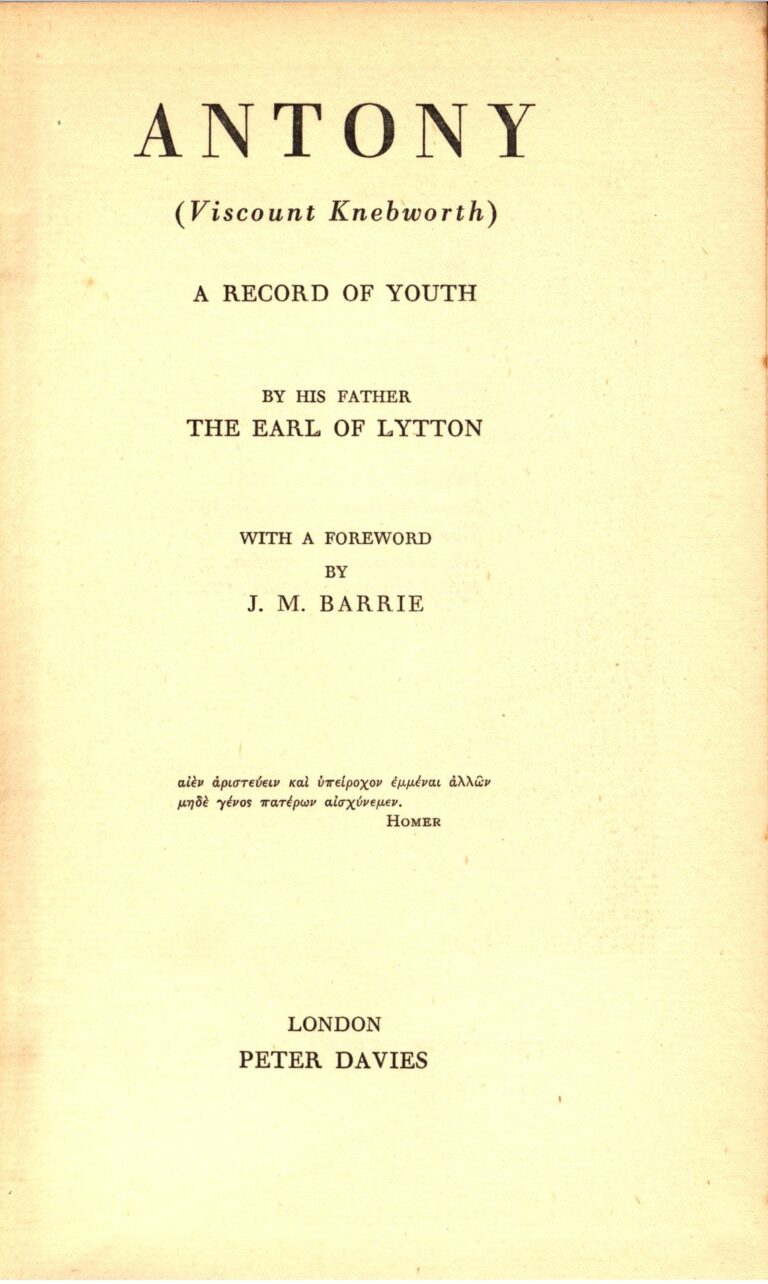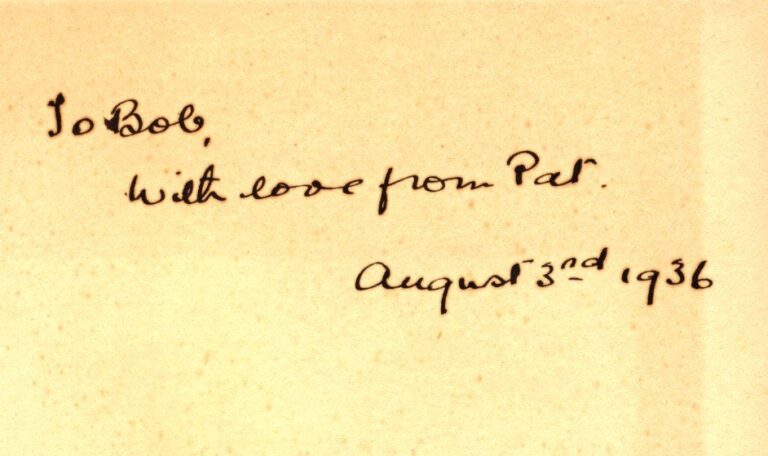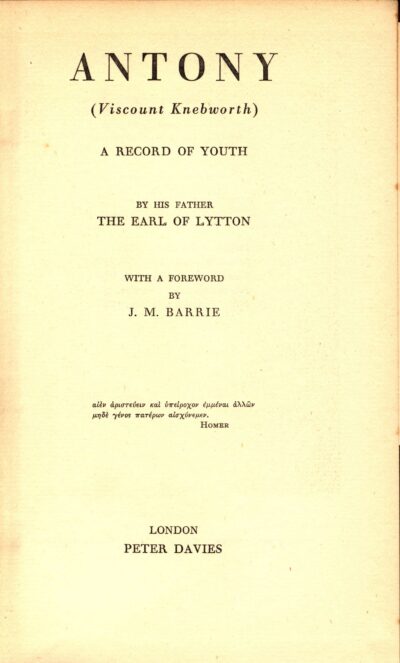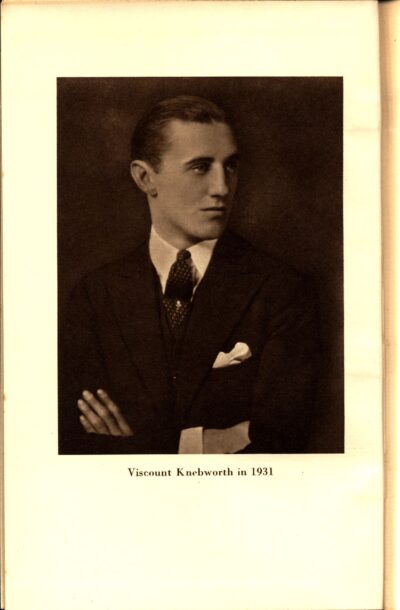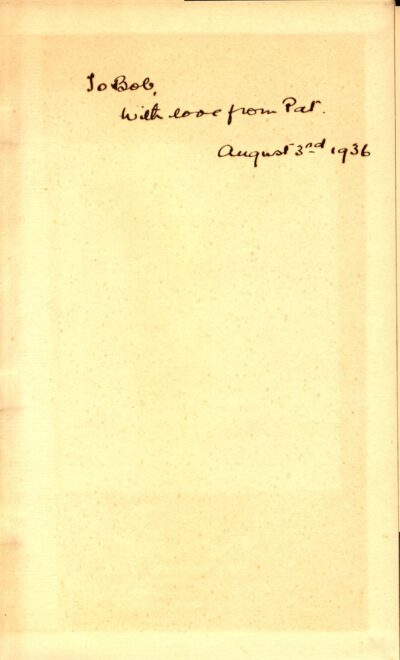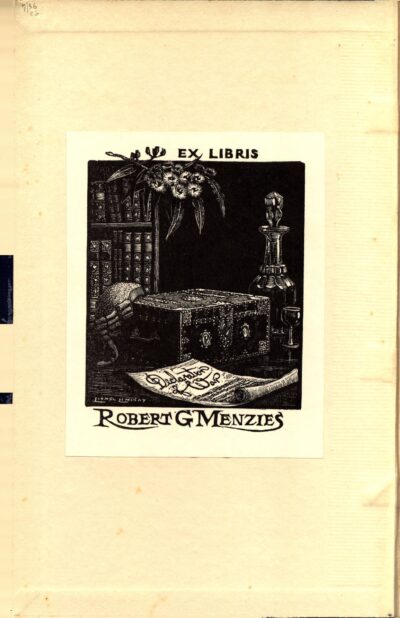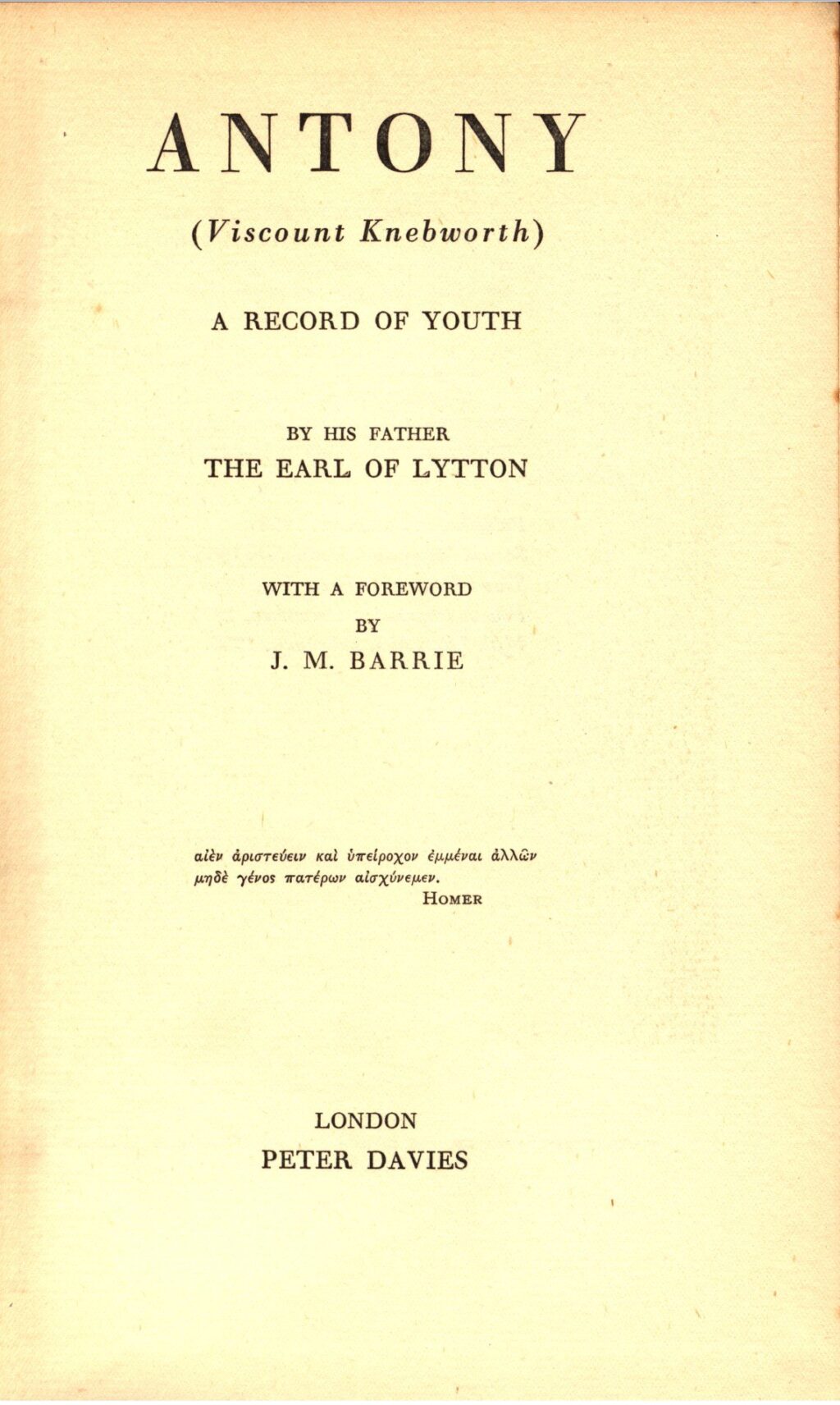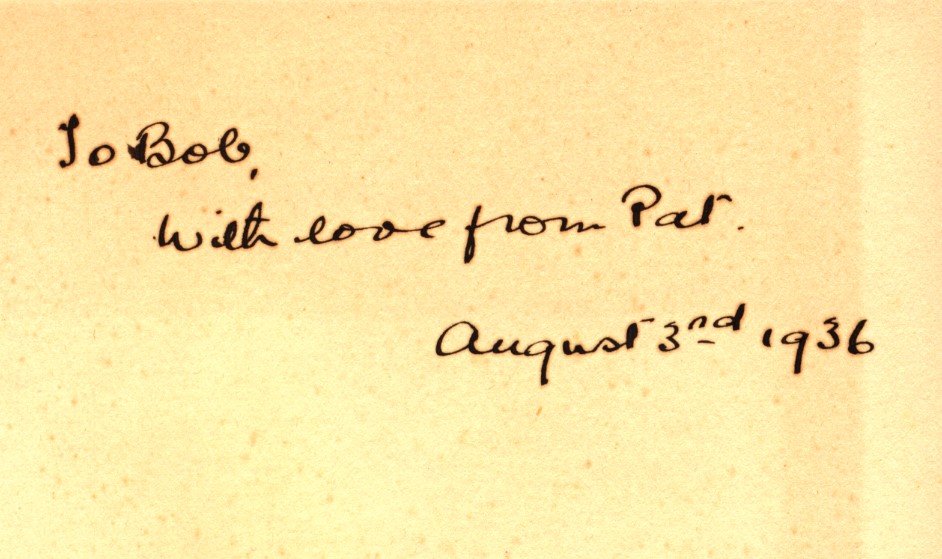Earl of Lytton, Antony (Viscount Knebworth): A Record of Youth (1936)
The Menzies Collection contains quite a number of books that were originally gifted to Robert’s wife Pattie, but it only contains one book that Pattie herself gifted her husband. Given on 3 August 1936, after Menzies had spent almost sixth months away from the family on a trip to England as Federal Attorney General, Menzies’s copy of Antony offers a small but intimate glimpse of a moment in their relationship.
Antony was the eldest son of the Earl of Lytton, a Conservative politician who had served as the Governor of Bengal. Born in 1903 to a family that had considerable aristocratic pedigree on both sides, Antony attended first Eton then Oxford, and even spent some time in India. On graduating he worked briefly as a stockbroker before taking up a position as what was essentially a political staffer in the Education Department of the Central Conservative Office. He ran unsuccessfully for the seat of Shoreditch in 1929, but won the seat of Hitchin in 1931.
That same year ‘Viscount Knebworth’ joined the Royal Air Force and quickly rose to the rank of Flight Lieutenant. In May 1933, he was leading a squadron of 9 planes in exercises for an upcoming air show when his plane ‘struck the ground with tremendous force… overturned, summersaulted about six times, then burst into flames which rose 60 feet in the air’. The fatal crash had thousands of witnesses, and was major news even in faraway Australia.
As a way of coping with the grief of losing his son, the Earl of Lytton collated the numerous letters he had received from Antony over the years, and eventually published them as a book. The result is a vital, heartwarming, but also tragic work, that reveals the ups and downs of Antony’s short life, and how he would frequently look to his father for guidance. Some of the earliest letters are from when Antony was just ten years old and, having to go off to boarding school, told his father that ‘life is hard’. The Earl in turn taught him that happiness lies ‘in the exercise of all your creative faculties in the service of the community to which you belong.’
The Sydney Morning Herald review lauded the book, explaining that:
‘From a very early age, [Antony] poured out long, interesting, and intimate letters, to his parents or friends, so that we are left with an amazingly clear picture of youth’s struggles, worries, triumphs, and joys. He has an almost Pepysian capacity for setting down everything about himself; his eagerness, his moods of depression, and restlessness, his ideas on religion, economics, literature, any subject at all, his undergraduate peccadilloes, his likes and dislikes, his ambitions, his laziness – everything, came pouring out with equal facility. The introspection and half-baked philosophising of some of the earlier letters might be morbid were it not for the ease with which he switches to a new mood. The composite picture of the writer presented by the letters is one of a fine character, of quick sympathy, understanding, intelligence, and honesty – a son of whom any parent might be proud.’
One can easily see what Pattie, who then had two teenage boys attending Geelong College, saw in the work. She gifted it to her husband with the simple inscription:
‘To Bob, with love from Pat’
But the subtext seems clear: with all the time you are forced to dedicate to public life and politics; be sure to save enough moments to appreciate and cherish your children. For as the Earl found out, those moments can be all too fleeting.
You might also like...
Sign up to our newsletter
Sign up for our monthly newsletter to hear the latest news and receive information about upcoming events.

